第13章 THE COMMODITY(11)
Direct barter,the spontaneous form of exchange,signifies the beginning of the transformation of use-values into commodities rather than the transformation of commodities into money.Exchange-value does not acquire an independent form,but is still directly tied to use-value.This is manifested in two ways.Use-value,not exchange-value,is the purpose of the whole system of production,and use-values accordingly cease to be use-values and become means of exchange,or commodities,only when a larger amount of them has been produced than is required for consumption.On the other hand,they become commodities only within the limits set by their immediate use-value,even when this function is polarised so that the commodities to be exchanged by their owners must be use-values for both of them,but each commodity must be a use-value for its non-owner.In fact,the exchange of commodities evolves originally not within primitive communities,[11]but on their margins,on their borders,the few points where they come into contact with other communities.This is where barter begins and moves thence into the interior of the community,exerting a disintegrating influence upon it.The particular use-values which,as a result of barter between different communities,become commodities,e.g.,slaves,cattle,metals,usually serve also as the first money within these communities.We have seen that the degree to which the exchange-value of a commodity functions as exchange-value is the higher,the longer the series of its equivalents or the larger the sphere in which the commodity is exchanged.The gradual extension of barter,the growing number of exchange transactions,and the increasing variety of commodities bartered lead,therefore,to the further development of the commodity as exchange-value,stimulates the formation of money and consequently has a disintegrating effect on direct barter.Economists usually reason that the emergence of money is due to external difficulties which the expansion of barter encounters,but they forget that these difficulties arise from the evolution of exchange-value and hence from that of social labour as universal labour.
For example commodities as use-values are not divisible at will,a property which as exchange-values they should possess.Or it may happen that the commodity belonging to A may be use-value required by B;whereas B's commodity may not have any use-value for A.Or the commodity-owners may need each other's commodities but these cannot be divided and their relative exchange-values are different.In other words,on the plea of examining simple barter,these economists display certain aspects of the contradiction inherent in the commodity as being the direct unity of use-value and exchange-value.
On the other hand,they then persistently regard barter as a form well adapted to commodity exchange,suffering merely from certain technical inconveniences,to overcome which money has been cunningly devised.Proceeding from this quite superficial point of view,an ingenious British economist has rightly maintained that money is merely a material instrument,like a ship or a steam engine,and not an expression of a social relation of production,and hence is not an economic category.It is therefore simply a malpractice to deal with this subject in political economy,which in fact has nothing in common with technology.[12]
The world of commodities presupposes a developed division of labour,or rather the division of labour manifests itself directly in the diversity of use-values which confront one another as particular commodities and which embody just as many diverse kinds of labour.The division of labour as the aggregate of all the different types of productive activity constitutes the totality of the physical aspects of social labour as labour producing use-values.But it exists as such --as regards commodities and the exchange process --only in its results,in the variety of the commodities them-selves.
The exchange of commodities is the process in which the social metabolism,in other words the exchange of particular products of private individuals,simultaneously gives rise to definite social relations of production,into which individuals enter in the course of this metabolism.
As they develop,the interrelations of commodities crystallise into distinct aspects of the universal equivalent,and thus the exchange process becomes at the same time the process of formation of money.This process as a whole,which comprises several processes,constitutes circulation .
FOOTNOTES
1.Aristotle,De Republica ,L.I,C."Of everthing which we possess there are two uses:...one is the proper,and the other the improper or secondary use of it.For example,a shoe is used for wear,and is used for exchange;both are uses of the shoe.He who gives a shoe in exchange for money or food to him who wants one,does indeed use the shoe as a shoe,but this is not its proper or primary purpose,for a shoe is not made to be an object of barter.The same may be said of all possessions...."2.That is why German compilers write con amore about use-values,calling them "goods".See for example the section on "goods"in I.Stein,System der Staatswissenschaft ,Bd.1.Useful information on "goods"may be found in "manuals dealing with merchandise".
3.At present an absurdly biased view is widely held,namely that primitive communal property is a specifically Slavonic,or even an exclusively Russian,phenomenon.It is an early form which ean be found among Romans,Teutons and Celts,and of which a whole collection of diverse patterns (though sometimes only remnants survive)is still in existence in India.